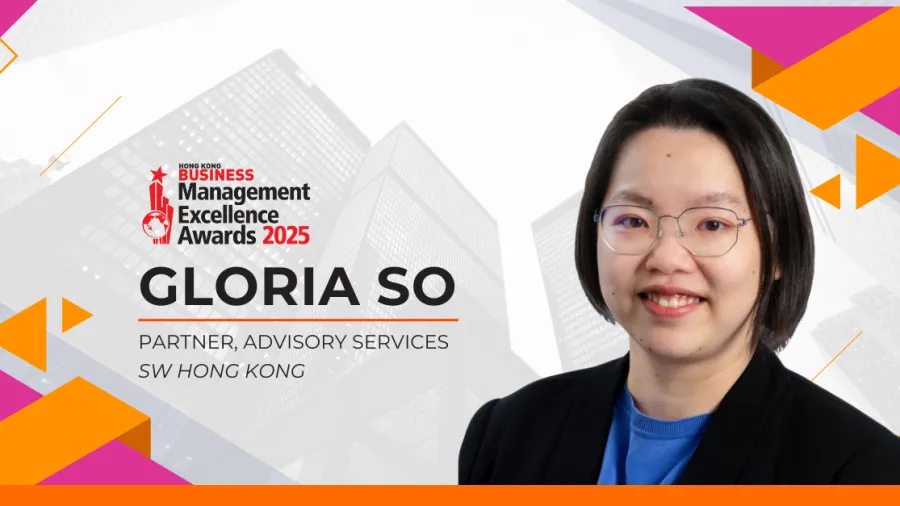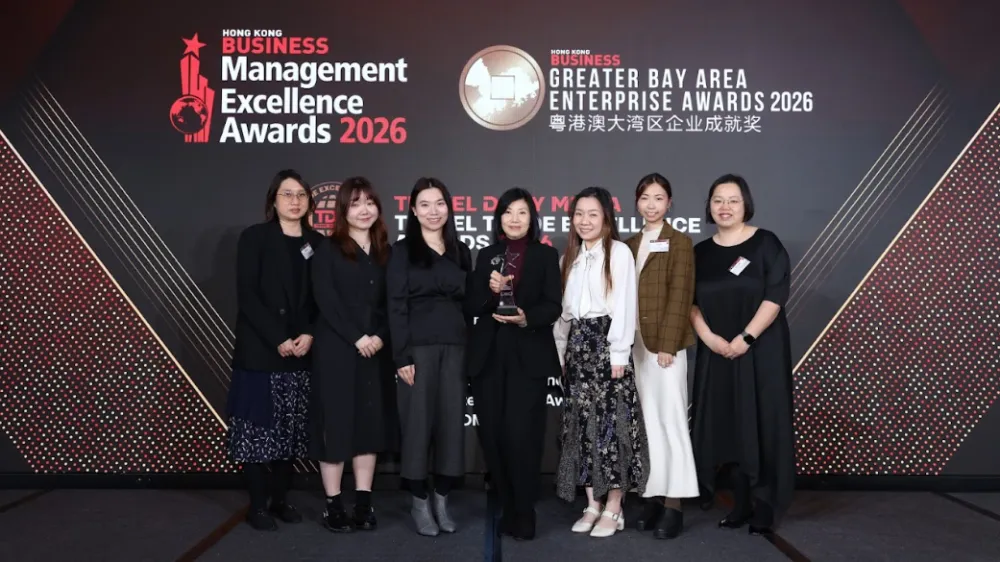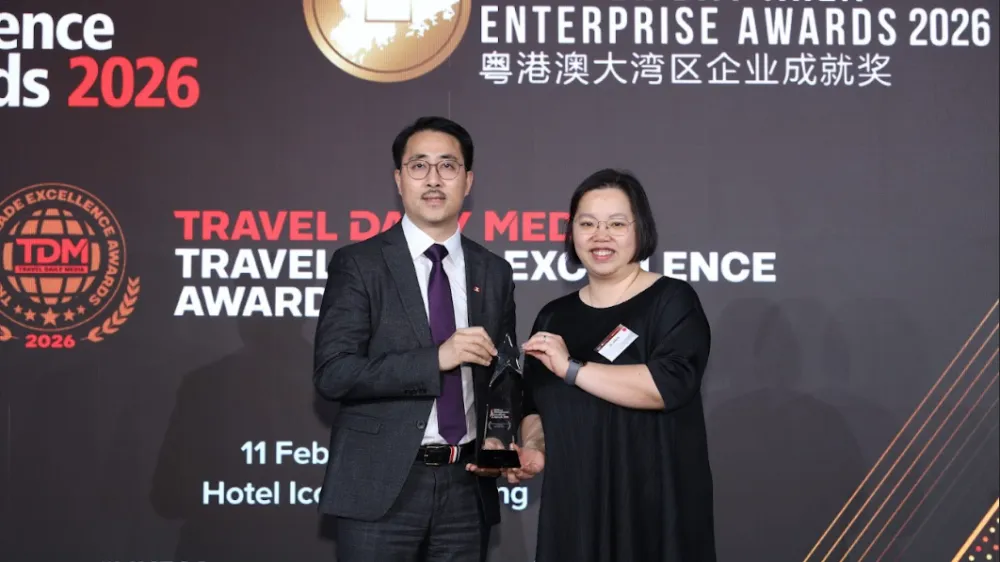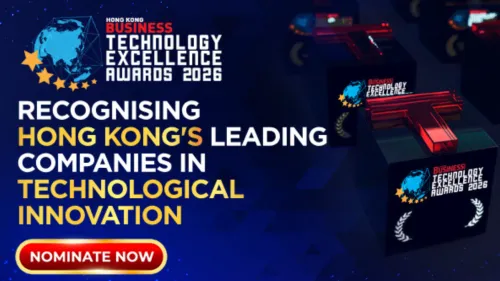
SW Hong Kong's Gloria So: Foster a culture that supports strategic objectives
She highlights the need for companies to address emerging risks, strong ESG practices, and build a culture of continuous improvement and adaptability.
The industry landscape today is characterised by escalating companies facing emerging risks from cybersecurity threats, climate change, and shifting regulations. To navigate these challenges, they must adopt comprehensive management strategies and practices to maintain resilience in this dynamic environment.
Offering valuable insights is Gloria So, Partner, Advisory Services at SW Hong Kong, with over 21 years of experience in enterprise risk management, internal controls, ESG report writing, information technology general control review, and financial due diligence. Her extensive expertise encompasses Sarbanes-Oxley Act services, internal audit reviews, and strategic engagements.
She has provided internal control review, process improvement, and ESG writing services to more than 60 listed companies and IPO projects. So is a member of the Hong Kong Institute of Certified Public Accountants, where she also served as a speaker and at various institutions, including CPA Australia and the Hong Kong Chartered Governance Institute. She has also published articles on inside information and ESG reporting in Hong Kong newspapers and magazines.
As a judge at the HKB Management Excellence Awards 2025, So emphasised the need for proactive risk management, effective ESG practices, and strategic leadership to navigate emerging challenges and ensure organisational success.
With over 21 years of experience in enterprise risk management and internal controls, what emerging risks do you see companies facing today, and how can they proactively address these challenges?
Today's companies face a myriad of emerging risks, primarily driven by technological advancements, environmental concerns, and evolving regulatory landscapes. Cybersecurity threats are escalating in both frequency and sophistication, posing significant risks to data integrity and security. Additionally, climate change introduces physical and transitional risks that impact resource scarcity, supply chain continuity, and corporate reputation. Regulatory changes, especially around data protection and sustainability, also pose compliance risks.
To proactively manage these risks, companies must adopt a holistic and integrated risk management approach. This involves enhancing cybersecurity measures through advanced technologies like artificial intelligence and machine learning to predict and mitigate potential breaches. For environmental and climate-related risks, developing a sustainability framework aligned with global standards such as the IFRS Sustainability Disclosure Standards or the GRI can guide actions and reporting. On the regulatory front, staying ahead requires continuous monitoring of legislative changes and embedding compliance into organisational culture rather than viewing it as a separate checklist.
Training and development are also crucial. Regular workshops and simulations can prepare employees to handle emerging risks effectively, ensuring they understand the latest threats and the actions required to mitigate them. Finally, robust incident response plans and continuous improvement mechanisms must be in place to adapt to the dynamic risk landscape effectively.
ESG has become increasingly important for companies. From your extensive experience in ESG report writing, what key elements should companies focus on to create a comprehensive and impactful ESG strategy?
Effective ESG strategies hinge on authenticity, comprehensiveness, and engagement. Firstly, companies must ensure their ESG efforts are genuinely integrated into their core business strategies rather than being superficial add-ons. This integration begins with a materiality assessment to identify ESG issues that are significant to the business and its stakeholders, ensuring that the strategy addresses relevant and impactful areas.
Engagement is another critical element. Companies should actively involve stakeholders, including investors, employees, customers, and communities, in developing and refining their ESG strategies. This engagement can be facilitated through regular surveys, stakeholder meetings, and public consultations.
Transparency in ESG reporting is essential to build trust and accountability. Companies should adhere to recognised reporting standards such as GRI, IFRS Sustainability Disclosure Standards, or TCFD to ensure their reporting is credible and comparable. Additionally, setting clear and measurable targets, as well as regularly reporting on progress, helps stakeholders track the company’s performance and holds it accountable to its commitments.
Finally, companies must be agile and responsive to the evolving understanding of what good ESG looks like. As societal expectations change and new challenges arise, companies should be prepared to reassess and adapt their strategies accordingly.
With your extensive experience in strategic review engagements, what do you believe are the key components of an effective strategic management plan that can drive organisational success?
A robust strategic management plan is characterised by clarity, coherence, and adaptability. The first step in crafting an effective plan is setting clear, achievable goals that are aligned with the organisation’s mission and vision. These goals should be specific, measurable, achievable, relevant, and time-bound (SMART).
Market and internal capability analysis forms the foundation of strategic decision-making. Companies must have a deep understanding of their external environment (e.g., market trends, competitive landscape, regulatory changes) and internal capabilities (e.g., resources, strengths, areas for improvement). This dual focus ensures that strategies are both ambitious and achievable.
Execution is where many strategic plans falter. Effective plans include detailed action items with assigned responsibilities, timelines, and resources. They also establish monitoring mechanisms to track progress and performance metrics to measure success. Regularly reviewing these metrics allows companies to adjust their strategies in response to performance data or external changes.
Lastly, fostering a culture that supports the strategy’s objectives is crucial. Leaders must communicate the strategic vision clearly and consistently, aligning all organisational activities and behaviours with the strategic goals. This alignment helps ensure that every part of the organisation contributes positively to the strategic objectives.
With your experience in process improvement, what strategies do you recommend for fostering a culture of continuous improvement within organisations?
Creating a culture of continuous improvement requires a combination of leadership commitment, employee empowerment, and systematic process evaluation. Leadership must support and promote continuous improvement not only in words but through actions. This includes allocating resources, such as time and money, to improvement initiatives and setting an example by engaging in improvement activities themselves.
Employee empowerment is equally critical. Employees should be encouraged to identify inefficiencies and suggest improvements. This can be facilitated through structured programmes like suggestion schemes or innovation contests. Providing training in problem-solving methodologies can equip employees with the tools they need to contribute effectively.
Systematic process evaluation involves regularly reviewing and assessing organisational processes to identify areas for improvement. This should be an ongoing process rather than a one-time review. Techniques such as process mapping, benchmarking against industry standards, and using key performance indicators (KPIs) can help identify performance gaps and opportunities for enhancement.
Recognising and rewarding improvements is also vital. Celebrating successes, even small ones, can motivate employees and reinforce the value of continuous improvement. Rewards can range from public recognition to financial incentives.
How can leaders cultivate an organisational culture that supports innovation, resilience, and adaptability in today's dynamic business environment?
Leaders play a pivotal role in shaping a culture that embraces innovation, resilience, and adaptability. This begins with fostering a mindset that views challenges as opportunities for growth and learning. Leaders can cultivate this mindset by encouraging risk-taking and experimentation, whilst providing a safety net for failure. This approach helps remove the fear of failure and promotes an innovative spirit.
Resilience can be built by providing teams with the resources and support they need to bounce back from setbacks. This includes emotional support, such as counselling and stress management programmes, and operational support, such as flexible work arrangements and robust contingency planning.
Adaptability is enhanced when leaders promote lifelong learning and ensure that employees have opportunities to develop new skills and knowledge that are relevant to the evolving business landscape. Regular training sessions, workshops, and access to courses can keep the workforce agile and ready to adapt to new technologies or processes.
Communication is also crucial. Leaders should maintain open lines of communication and ensure that all employees are aligned with the company’s goals and aware of changes in the environment. This transparency helps foster a sense of security and trust, which are essential for innovation and resilience.
As a judge for the Hong Kong Business Management Excellence Awards, what specific qualities or achievements do you consider indicative of exceptional management excellence?
Exceptional management excellence manifests through visionary leadership, outstanding operational efficiency, and a demonstrable impact on both the industry and the community. As a judge, I look for leaders who not only have a clear strategic vision but are also able to communicate this vision effectively to their teams and stakeholders. This vision should not only drive the company forward but also push the boundaries of what is considered standard in the industry.
Operational efficiency is another critical indicator. This includes optimising processes to maximise productivity, implementing innovative solutions to reduce costs, and maintaining high quality in products and services. Leaders who excel in management not only improve their organisations but also set new standards for efficiency and quality in their sectors.
Lastly, a significant impact on the community and industry is essential. This can be through pioneering initiatives that address significant challenges, contributions to economic growth, or sustainable practices that benefit the environment and society. Recognition from peers, measurable contributions to industry standards, and positive changes in community well-being are all indicators of management excellence.



















 Advertise
Advertise






